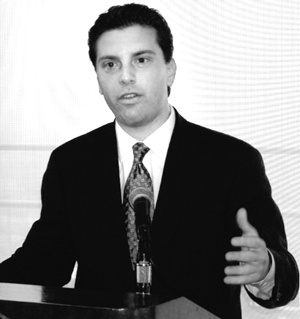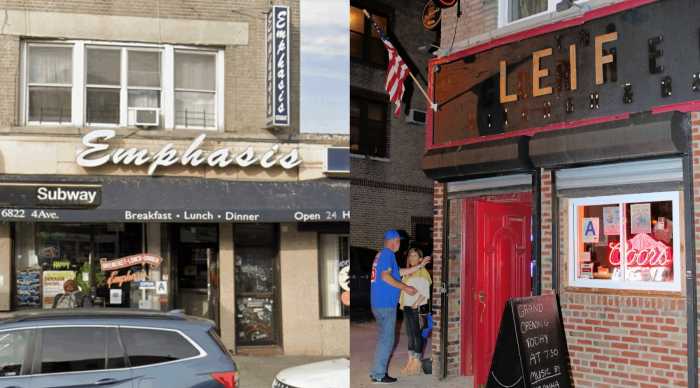The issue of AIDS housing in New York will get a boost on February 2 as powerful advocates of affordable housing demand that the City Council help homeless people living with HIV and AIDS.
At the “Housing Here and Now” march, which will lead protestors over the Brooklyn Bridge and end at a rally at City Hall, groups like the Association of Community Organizations for Reform Now (ACORN) will join with AIDS housing advocates to ask the City Council to pass a package of legislation that would require the city to streamline its system.
“New York City has not only a legal obligation, but a moral imperative, to provide for our society’s most vulnerable citizens,” said Queens Councilman Eric Gioia, who introduced the bills last Wednesday with Councilmembers Bill de Blasio of Brooklyn and Christine Quinn of Manhattan. “We’ve seen time and again that a bureaucracy that is unchecked and unmonitored is a bureaucracy that does not serve the public.”
The three bills will be reviewed by the Council’s General Welfare Committee, chaired by de Blasio, in hearings scheduled to start in mid to late February. If passed, the legislation would force the HIV/AIDS Service Administration (HASA), the city agency responsible for housing homeless people with the disease, to make reports to the Council every 90 days. The reports would include specific data about the agency’s caseload and clients, the date each client enrolled with the agency and the status of their housing applications—information that would give the Council a vivid picture of the agency’s progress. It would also create a database HASA could use to track the status of each client’s housing application.
Armen Merjian, the senior staff attorney at the AIDS housing group Housing Works, said he hopes the legislation will pass without controversy. In 2000, a court ordered the city to provide the same data on a monthly basis, which it has been doing since then. However, the mandatory reporting period expired on December 11, 2004.
Merjian says there are few substantive differences between the reporting required of HASA under the court order and the numbers the councilmembers’ proposals are now seeking.
“We’re not asking them to reinvent the wheel,” Merjian said. “The law should be passed without too much fanfare or difficulty.”
The hardest hitting part of the legislation would make it illegal for HASA to shirk its duties. The legislation would force the agency to give every client an application for permanent housing as the time he or she enters the HASA system, something that is not done now as many wait in temporary housing without any hope of permanent apartments. The legislation would also require the city to show every client at least three permanent apartments within 90 days, giving them the best chance possible to get out of private hotels and single-room occupancy boarding houses.
In June 2004, Gioia’s office found that these changes are desperately needed. An investigation revealed that people were getting trapped in the system, staying in “temporary, emergency” housing for periods of up to several years without contact with their caseworkers. Another report, recently released by the health department, found that New York is overspending on the housing it does offer. Many HASA clients are housed in privately-run hotels, for which the city pays up to $2,100 per month for a single room. The councilmembers say that HASA’s policies are detrimental for both HIV-positive clients and the city’s budget.
“In terms of magnitude, [this legislation is] fairly huge,” said Jennifer Flynn the director of the New York City AIDS Housing Network. “It is essentially a right to housing. It would be first right to housing in the United States. But, if you think about it in terms of what we do now—the fact that it’s cheaper and we could actually do it—it just requires a few changes and then it will be better for HASA and for the city.”
A spokesperson for HASA’s parent agency, the Human Resources Administration, declined specific comment on the legislation, but said HRA looked forward to working with the Council. However, some councilmembers indicated their belief that the agency will oppose the changes. Still, Merjian remains optimistic.
“I think we have a City Council that cares about poor people. New York City is something of a different thing than the incredibly Republican-dominated American politics at large, more progressive,” he said. “There’s a great possibility that the time is right for them to do something they should do. It’s what’s right and what’s needed.”
gaycitynews.com




































